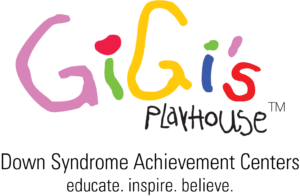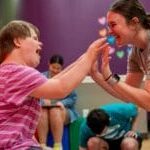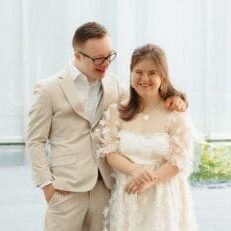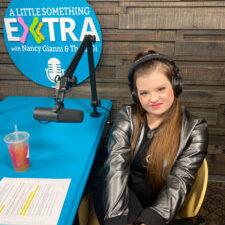Starting Small, Dreaming Big: LMNOP Expands Its Reach in Nigeria
When Tola Makinde first visited GiGi’s Playhouse Twin Cities nearly a decade ago, she was a young mom from Nigeria searching for answers, community, and hope for her daughter, Mo, who was born with Down syndrome.
That single visit planted a seed. When Tola first visited a GiGi’s Playhouse in person, she was struck by its joyful energy. “I remember walking in and just feeling the joy,” she said. The vibrant environment sparked a vision:
What if children with Down syndrome in Nigeria could experience this kind of inclusion?
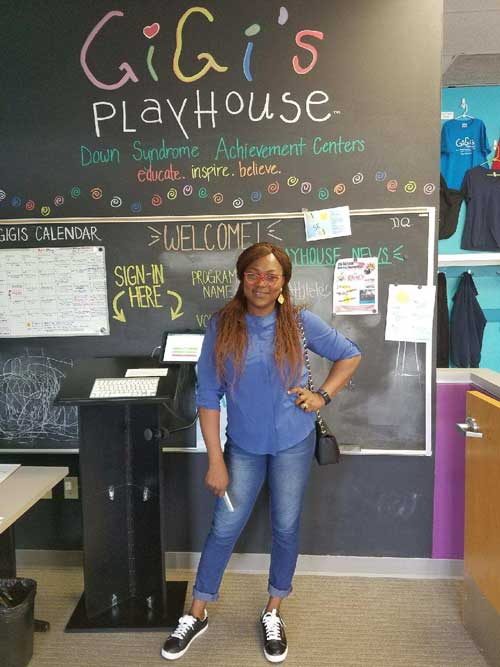
Back home, however, that vision was rare. In Nigeria, children with disabilities often face deeply ingrained stigma. Myths and misinformation persist, with many families feeling isolated or ashamed. Tola had experienced it firsthand: after Mo’s birth, she resigned from her career in banking due to social pressure and a lack of support.
But instead of turning away, she leaned in, launching the Morainbow Down Syndrome Foundation to change perceptions and create community in Nigeria.
Fast-forward to today, and Tola is not only running Morainbow, but she’s partnering with GiGi’s Playhouse as a volunteer LMNOP (Language, Music ‘N Our Peeps) program lead through our Virtual Playhouse.
Every Thursday, families from Nigeria, the UK, the U.S., and beyond tune in for Tola’s LMNOP class—an energetic, music-filled session focused on early communication skills for young children with Down syndrome. These virtual sessions include sign language, storytelling, rhythm, singing, and sensory play. Designed for newborns, toddlers, and their parents, LMNOP offers skill-building and a space to connect and belong.
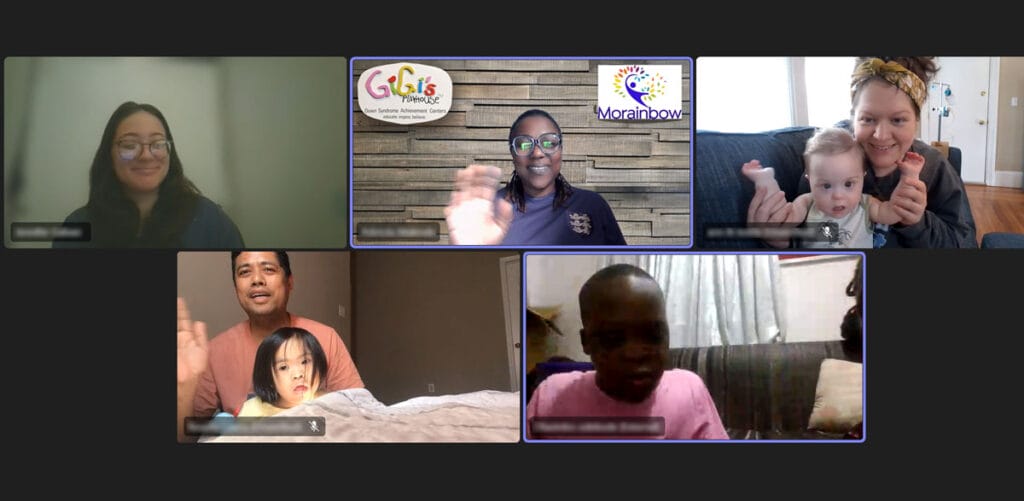
But for Tola, this program offers something even more powerful: hope.
In many parts of Nigeria, early intervention services are unavailable, and misinformation continues to isolate families. In fact, some families must travel for hours just to access therapy for their children with Down syndrome. “That’s not sustainable,” Tola said.
But access isn’t the only challenge families face. In some parts of Nigeria, children with Down syndrome are still stigmatized. “There are still parents being told their child is a curse” Tola said.
But Tola believes that the GiGi’s Virtual platform and programs like LMNOP can help replace that fear with knowledge, joy, and hope.
Since volunteering as a virtual LMNOP program lead in April, Tola has reached families in multiple Nigerian states, the U.S., and the UK. As attendance grows, she’s working with GiGi’s to expand awareness and identify barriers that might be limiting participation, like power outages and internet access.
Tola’s long-term goal is to bring the program to all 36 states across Nigeria, while also supporting families in other countries where resources and access remain limited.
“I believe inclusion is not a favor—it is a right,” Tola said. “Every child deserves the chance to thrive, no matter where they live.”
And through LMNOP and GiGi’s Virtual Playhouse, Tola is turning that belief into action.
